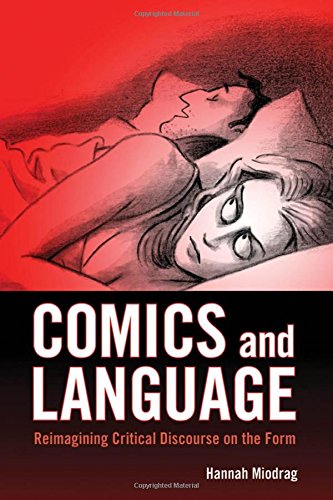

Most ebook files are in PDF format, so you can easily read them using various software such as Foxit Reader or directly on the Google Chrome browser.
Some ebook files are released by publishers in other formats such as .awz, .mobi, .epub, .fb2, etc. You may need to install specific software to read these formats on mobile/PC, such as Calibre.
Please read the tutorial at this link: https://ebookbell.com/faq
We offer FREE conversion to the popular formats you request; however, this may take some time. Therefore, right after payment, please email us, and we will try to provide the service as quickly as possible.
For some exceptional file formats or broken links (if any), please refrain from opening any disputes. Instead, email us first, and we will try to assist within a maximum of 6 hours.
EbookBell Team

5.0
50 reviewsIt has become an axiom in comic studies that "comics is a language, not a genre." But what exactly does that mean, and how is discourse on the form both aided and hindered by thinking of it in linguistic terms? In Comics and Language, Hannah Miodrag challenges many of the key assumptions about the "grammar" and formal characteristics of comics, and offers a more nuanced, theoretical framework that she argues will better serve the field by offering a consistent means for communicating critical theory in the scholarship. Through engaging close readings and an accessible use of theory, this book exposes the problems embedded in the ways critics have used ideas of language, literature, structuralism, and semiotics, and sets out a new and more theoretically sound way of understanding how comics communicate.
Comics and Language argues against the critical tendency to flatten the distinctions between language and images and to discuss literature purely in terms of story content. It closely examines the original critical theories that such arguments purport to draw on and shows how they in fact point away from the conclusions they are commonly used to prove. The book improves the use the field makes of existing scholarly disciplines and furthers the ongoing sophistication of the field. It provides animated and insightful analyses of a range of different texts and takes an interdisciplinary approach. Comics and Language will appeal to the general comics reader and will prove crucial for specialized scholars in the fields of comics, literature, cultural studies, art history, and visual studies. It also provides a valuable summary of the current state of formalist criticism within comics studies and so presents the ideal text for those interested in exploring this growing area of research